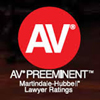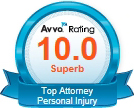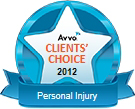Accident Lawyer Hawaii - Cases and Claims

|

|

|

|
Accident Lawyer Hawaii - Insurance Claims Attorney
Attorneys Bill Lawson & Amy Woodward |
Initial Steps in Making Your ClaimsPursuing a personal injury casePreservation of evidence for your case Accident report aka incident report Medical information for your claim Employment information for your claim
Preservation of evidence for your case
After an accident the very first and most important requirement (from the point of view of making a claim) is usually to preserve whatever evidence is available regarding the accident. This usually involves finding, saving, storing and preserving whatever evidence it is possible to find, save, store and preserve and photographing and/or videotaping all evidence that may for some reason be perishable or subject to change. It also involves locating and interviewing witnesses to the accident and others who may be familiar with the conditions which gave rise to the accident. All
products- such as appliances, furniture, containers, medications,
food, etc.- involved in the accident should be saved. Specific
examination and testing is often required. The vehicles
involved in a severe collision should be saved for inspection
by experts. The cause of a motor vehicle accident can often
Proper preservation and documentation of the evidence related to your claims may require experienced investigators and even the involvement of trained scientists and engineers. These expenses can be fairly steep. They are particularly steep for a family already dealing with the financial burdens of an accident. If you retain this office on your case, we will be happy to assist you in finding, saving, storing and preserving evidence and in photographing and/or video-taping and otherwise documenting facts and circumstances related to your claims. These costs will be advanced by us for your case. Accident report aka incident report After
an accident it is important to begin to record all information
relevant to that accident. In a car accident, drivers exchange
Medical information for your claim As
soon as reasonably possible after an accident, an injured
person should seek qualified medical attention. Although
Employment information for your claim In order to make a lost earnings claim, you will need to have one or more off-work slips (with specific dates indicated) and proof of the earnings lost during that period. The earnings lost can be proven by payroll records, a letter from the employer or other appropriate documentation. For accidents in Hawaii, a wage loss claim is sometimes available under TDI, worker's compensation or occassionally as part of the no fault coverages in a car accident. Most
insurance adjusters will want to take a recorded statement
In short, there are many steps to be taken to establish a personal injury case once an accident has occurred which may give rise to a claim. Evidence must be preserved, photographs and/or videotapes must be taken and witnesses must be located and interviewed. Other basic investigation must be undertaken and information must be gathered. Within a short period of time, much evidence (and perhaps evidence crucial to the case) will be lost. To obtain a satisfactory resolution of the case later, the proper groundwork must be laid at the earliest possible date. Contact us now for a free evaluation of your case.
|
|
Accident Lawyer Hawaii
Law Offices of William H. Lawson
New client hotline:
Pearl City, Aiea and Waipahu:
Main business phone: Products Liability - Cases & Comment Jones Act- maritime law and seaman cases The Constitution Of The State Of Hawaii Recent Personal Injury and Car Accident News
|
|
Awards and Honors  Martindale Hubbell - AV rated lawyer - Best Rating Possible
Martindale Hubbell - AV rated lawyer - Best Rating Possible
 Multi-Million Dollar Advocates Forum
Multi-Million Dollar Advocates Forum
 AVVO Top Rated Personal Injury Attorney, 10 of 10
AVVO Top Rated Personal Injury Attorney, 10 of 10
 ATLA Top 100
ATLA Top 100
 Lawyers.com - Rated 5.0 out of 5.0 - Top Rating Possible
Lawyers.com - Rated 5.0 out of 5.0 - Top Rating Possible
 National Trial Lawyers - Top 100 Trial Lawyers
National Trial Lawyers - Top 100 Trial Lawyers
 Million Dollar Advocates Forum
Million Dollar Advocates Forum
 American Society of Legal Advocates - Top 100 - 2017
American Society of Legal Advocates - Top 100 - 2017
 Marquis' Who's Who in the World, Who's Who in America and Who's Who in American Law
Marquis' Who's Who in the World, Who's Who in America and Who's Who in American Law
 AVVO Clients' Choice Personal Injury Lawyer
AVVO Clients' Choice Personal Injury Lawyer
 Expertise - Best Car Accident Lawyers in Honolulu 2019
Expertise - Best Car Accident Lawyers in Honolulu 2019
 Best Attorneys in America - Life Charter Member
Best Attorneys in America - Life Charter Member
|
|
Click on a box below to choose one of our 4 menus:
There is NO CHARGE for sending your case information to our law firm. The information provided on this website is preliminary and informational ONLY. It is not legal advice. The use of our webpages does not establish an attorney-client relationship. This website is copyright 1999-2020 and the contents of this website are the property of Personal Injury Attorney William H Lawson. The Terms and Conditions of Use for this website and our Privacy Policy are available here for your consideration. All rights reserved. Accident Lawyer Hawaii - Case, ClaimWe thank you for visiting our site! |





 be determined by an expert's inspection of the vehicles
involved. A dangerous condition which gives rise to the
accident should be photographed and/or videotaped as soon
as possible. Otherwise it may change or be changed before
the necessary evidence to pursue the claim has been gathered.
Interviews should be conducted promptly- before memories
fade or subsequent events corrupt the memory's recall. Identifying
and locating witnesses and obtaining accurate recall of
the events surrounding the accident becomes progressively
more difficult with each day that elapses after an accident.
Delay may prove to be very costly. So please don't delay.
be determined by an expert's inspection of the vehicles
involved. A dangerous condition which gives rise to the
accident should be photographed and/or videotaped as soon
as possible. Otherwise it may change or be changed before
the necessary evidence to pursue the claim has been gathered.
Interviews should be conducted promptly- before memories
fade or subsequent events corrupt the memory's recall. Identifying
and locating witnesses and obtaining accurate recall of
the events surrounding the accident becomes progressively
more difficult with each day that elapses after an accident.
Delay may prove to be very costly. So please don't delay.
 names, addresses, phone numbers and insurance information.
If the police are called, a lot of additional information
is usually recorded in the police report. In a slip and
fall accident, the injured person- or his representative-
should file an incident report as soon as possible with
the owner of the premises where the accident occurred. This
report should indicate the approximate location, the date
and the time of the injury and a very brief statement (one
sentence) of what happened. Similar incident reports can
be generated for dangerous product claims, maritime claims,
and other claims. The existence of an incident report can
be helpful in answering an insurer's first concerns regarding
an accident- did this accident really happen and was my
insured involved?
names, addresses, phone numbers and insurance information.
If the police are called, a lot of additional information
is usually recorded in the police report. In a slip and
fall accident, the injured person- or his representative-
should file an incident report as soon as possible with
the owner of the premises where the accident occurred. This
report should indicate the approximate location, the date
and the time of the injury and a very brief statement (one
sentence) of what happened. Similar incident reports can
be generated for dangerous product claims, maritime claims,
and other claims. The existence of an incident report can
be helpful in answering an insurer's first concerns regarding
an accident- did this accident really happen and was my
insured involved?  medical care is pretty expensive, the absence of medical
care- especially for an extended period of time- may be
even more expensive to an injured person. Such delay may
significantly damage the valuation of a personal injury
claim. It creates uncertainty in the insurer's assessment
of the injuries- were they truly a result of this accident?
It may also create doubt in the minds of jurors- if the
injuries were serious enough for a lawsuit, why wasn't a
doctor consulted? See a qualified doctor for your treatment
and someone that you trust. Be aware that there are some
doctors who bias their opinions in favor of insurance companies.
You will want to avoid having such a doctor as your treating
doctor.
medical care is pretty expensive, the absence of medical
care- especially for an extended period of time- may be
even more expensive to an injured person. Such delay may
significantly damage the valuation of a personal injury
claim. It creates uncertainty in the insurer's assessment
of the injuries- were they truly a result of this accident?
It may also create doubt in the minds of jurors- if the
injuries were serious enough for a lawsuit, why wasn't a
doctor consulted? See a qualified doctor for your treatment
and someone that you trust. Be aware that there are some
doctors who bias their opinions in favor of insurance companies.
You will want to avoid having such a doctor as your treating
doctor. from a claimant before completing evaluation of a claim.
This statement may be used later to attempt to attack a
claimant's credibility. Giving such a statement without
the advice and assistance of an attorney carries significant
risk. Most claimants are well advised to obtain the services
of a competent and experienced personal injury attorney
to protect their legal rights before proceeding with such
an interview.
from a claimant before completing evaluation of a claim.
This statement may be used later to attempt to attack a
claimant's credibility. Giving such a statement without
the advice and assistance of an attorney carries significant
risk. Most claimants are well advised to obtain the services
of a competent and experienced personal injury attorney
to protect their legal rights before proceeding with such
an interview. 

